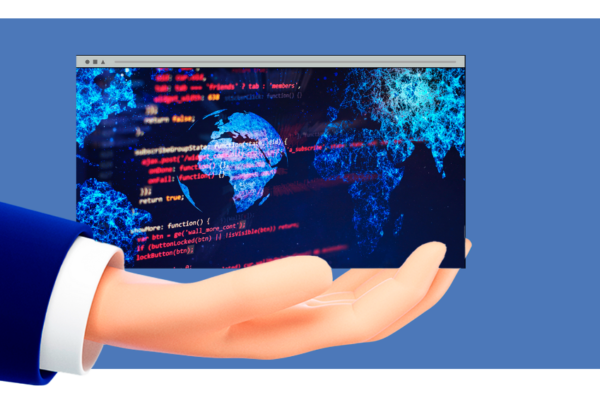In the 1990s, he considered programming a hobby that enabled him to program simple games. He gradually moved to creating web presentations, from where his path led to the first version of the now successful Medor system, used by companies from the pharmaceutical industry and FMCG both in the Czech Republic and abroad. “What hasn’t changed is the search for challenges and the constant effort to improve the product and move it forward,” says Pavel Randák with satisfaction.
“Medor started as a one-man show, and now there are about twenty of us,” Randák returns to his diploma thesis, which included the first version of the CRM system now used by both small companies and large multinational corporations.
It will be 20 years since the first Medor code was written. Where have the company and the product moved during that time?
The shift has been huge. I would certainly not be able to deliver all the services we provide on my own, but I’m lucky to have an excellent team of enthusiasts that help me push it ahead. The number of agendas processed by Medor has also greatly increased. In 2011, I started processing data from several sources myself. Now they are processed by machines operated by my colleagues so that everything can be done as quickly as possible, especially without errors. We’re no longer a small garage company, but a reliable partner, even for large corporations.
Data processing is playing an increasingly important role. Do you see great potential in this sector in the Czech market?
I definitely do. Data rules, and there are more and more of it. Business managers can no longer deal with all resources and they necessarily need software for their consolidation and presentation in a form suitable for making the right decisions.
So you believe that the interest in system processing will grow significantly this year. Are you planning any development innovations that will offer the necessary solution?
The year 2021 will play an important role in the development, modification and improvement of our reporting functions. We are increasingly using Business Intelligence, which, unfortunately, is still not used by many companies in the Czech Republic. We would like to introduce this solution to each of our clients, including potential ones, because the benefits of BI in terms of saving time and making the right decisions are huge.
This year will be marked by the pandemic which may be followed by an economic crisis. You, as an active entrepreneur, experienced the crisis in 2008. Do you see any similar elements that will transform the IT market?
So far, this crisis has been completely different. To be specific, that crisis didn’t affect us until 2009, i.e. a year later, when our clients stopped paying our receivables and the number of development contracts decreased. We had a great team of four programmers at the time, of which only one was left half a year later, believing that the situation would improve, which did happen in the second half of the year. The current crisis hasn’t affected IT fields much so far. Perhaps, on the contrary, it offers opportunities because of the increasing pressure on digitisation, automation and performance monitoring, which is exactly where we provide our services. The current situation increases companies’ dependence on IT and demands on protection against digital attacks that both companies and public institutions will face.
In addition to the need for security, do you see any new trends in the development of programming and the use of modern technologies that are coming?
We are already surrounded by technologies, and there will be even more of them. Personally, I perceive the pressure to simplify user environments, platform independence and a wide range of functionality. Today’s users want to use the software both on a computer and on a tablet or phone. And everywhere they need sufficiently intuitive control with quick access only to relevant information. That’s why we are in close contact with the end user of our solution and we try to adapt as much as possible to individual work styles. The era of static solutions is over. Nobody wants to see the squares they don’t need and not have enough flexibility in the squares they do need.

When it comes to trends and technologies, what do you use in Medor? What tools and platforms do you work with?
Our program code has always been based on Microsoft. When I was developing the first Medor, I was using Visual Basic, which we have replaced with ASP.NET in its C# version and Kendo-React components. We also consider ourselves skilful Czechs, so we try to be independent. We have our own development and service divisions. Our solutions run on our own servers, which are taken care of by our “IT guys”. Since the beginning, we’ve used both Linux/Unix and Windows platforms. In cloud services, we use both Google and Microsoft from. As regards databases, we finally stabilised on SQL, specifically two – MS SQL and MySQL.
How did you actually get to programming? Was it a passion from your early age or did it come gradually?
As a boy, I was interested in modelling and even more electronics, so I went to the electrical engineering secondary school in Ječná. Programming was my hobby in the 90s and I programmed simple games on ATARI 800XL. At Czech Technical University, to make my studies easier, I started programming macros for MS Office, then static web presentations, then dynamic, which gradually turned into the first version of Medor as part of my diploma thesis. When I went to secondary school, I saw myself more as an IT technician, which I still am in a way.
You are also a fan of alternative computer cooling.
I don’t even remember when I put the first water cooler on the CPU. You couldn’t buy them at that time, so I used an aquarium pump with an old car radiator. Today, many manufacturers provide this type of cooling and they have really beautiful parts from which you can build water cooling like a jigsaw puzzle. Although many people play with different diodes and turn a computer into a colourful circus, I personally focus on its main benefit, which is absolute silence. This is the biggest advantage of this solution. It doesn’t matter how demanding the game you play is or how rough you are with your hardware, your computer will always be quiet. Personally, I use a heat exchanger (cooler and pump) that is led out through the wall outside the residential space, so not only do I not hear any fan, but now in the winter I reach incredible temperatures around 20°C under load on the CPU.
Do you think it may be a trend that will affect the general public or will it be only for a few enthusiasts and experts?
The complexity of this solution certainly guarantees that this type of cooling will only be used by enthusiasts. There are compact solutions for CPU cooling, but they have lower efficiency, so they seem like a gimmick to me. Well, I’m not even going to comment on nitrogen, because that’s definitely a lab thing. But I think that oil immersion cooling has a future in server rooms, because it has much greater cooling efficiency with lower energy consumption. We will encounter this technology more and more often in server housing.
In addition to programming, cooling and data, you are interested in Eastern culture. What did you find attractive about it?
What I found probably the most interesting was the Japanese honour system. Personally, I value truthfulness, straightforwardness, loyalty and diligence. I play fair with everyone and I expect the same from the other side. A man’s handshake and promise is a commitment that shouldn’t be violated. I understand the need for paper contracts and the like, but for me the agreement is concluded by a handshake, and paper is only an administrative necessity. Despite the current crisis, we are doing well in the Czech Republic, and we should appreciate that. I think that the Czechs could work a little on their loyalty, and our diligence could improve too. There are, of course, notable exceptions as everywhere in the world. You can’t just lump all people together.




